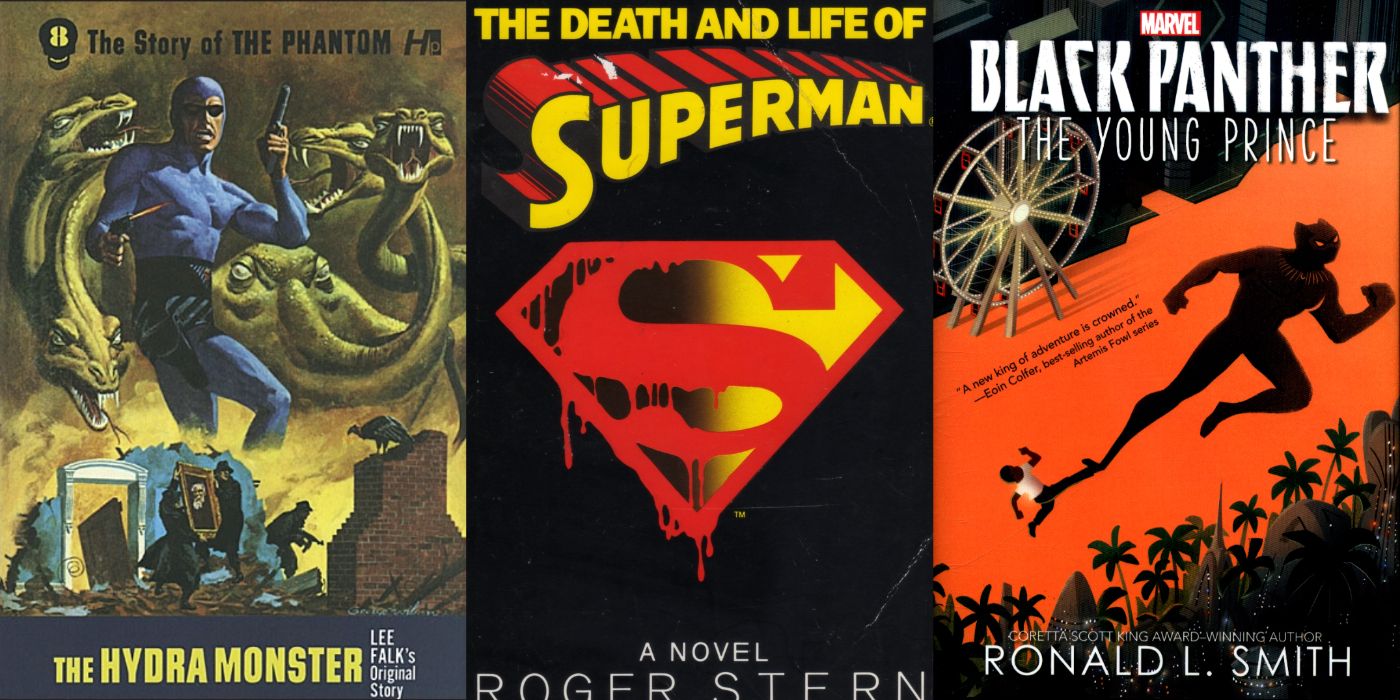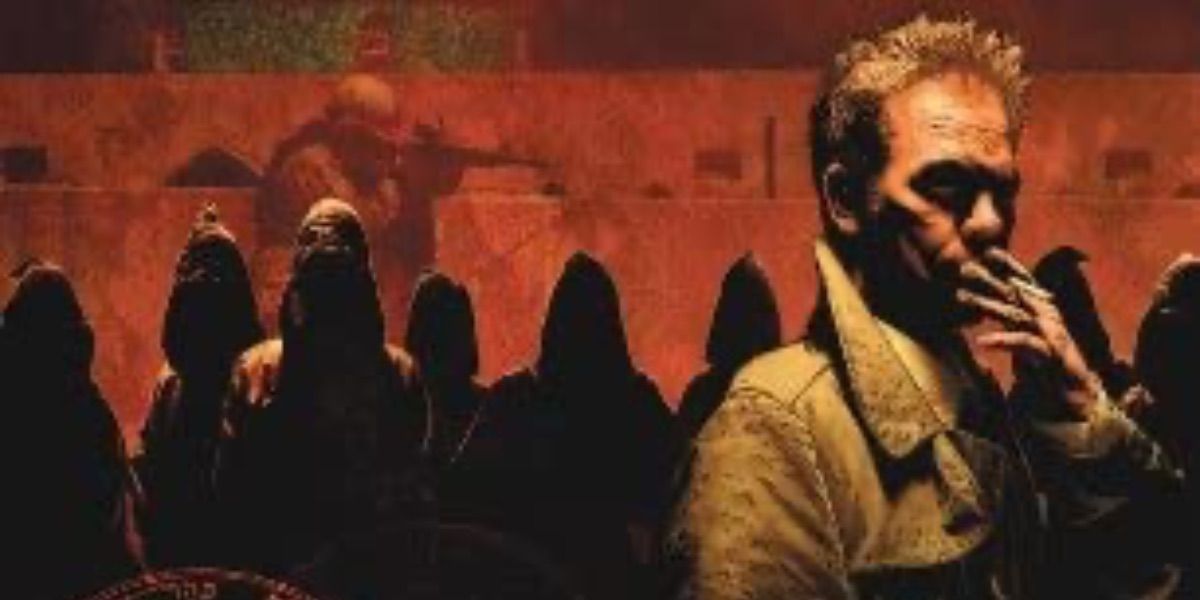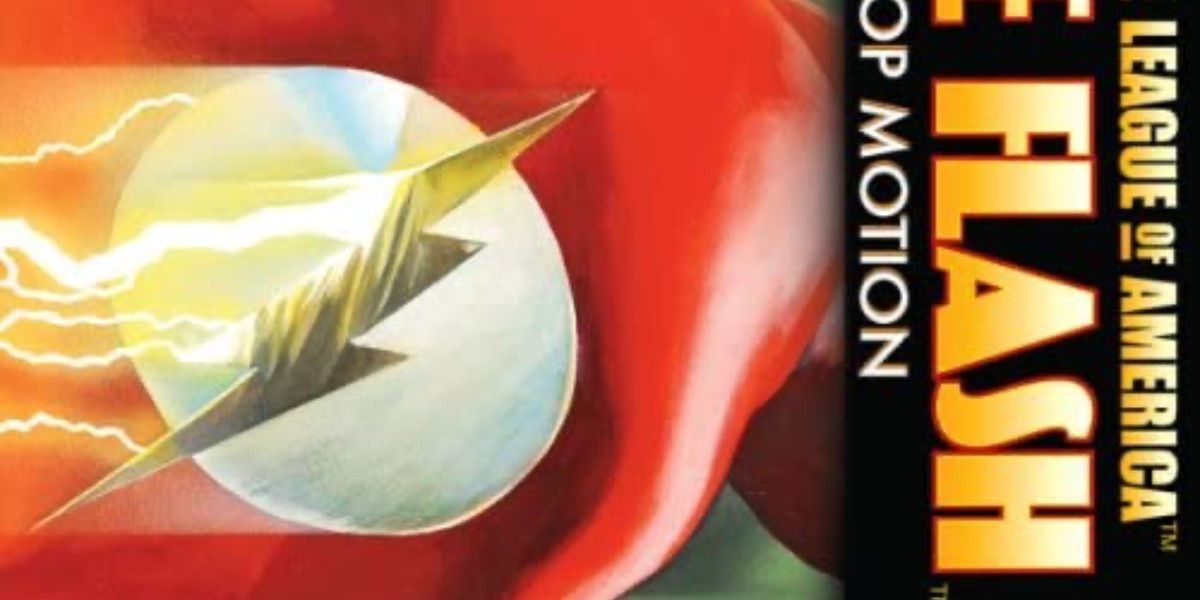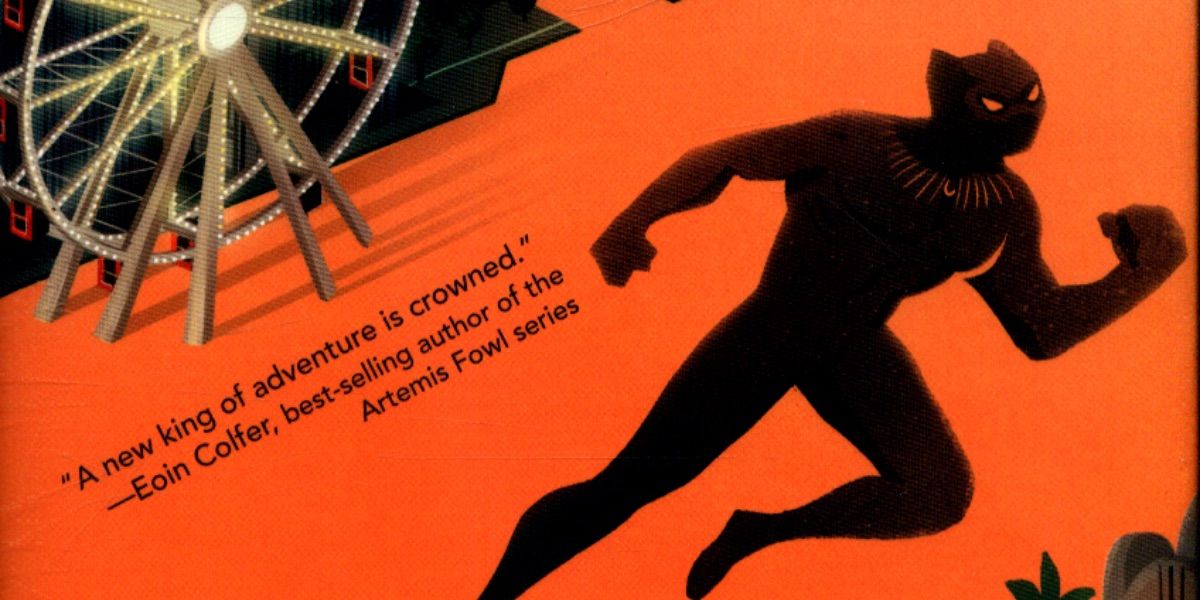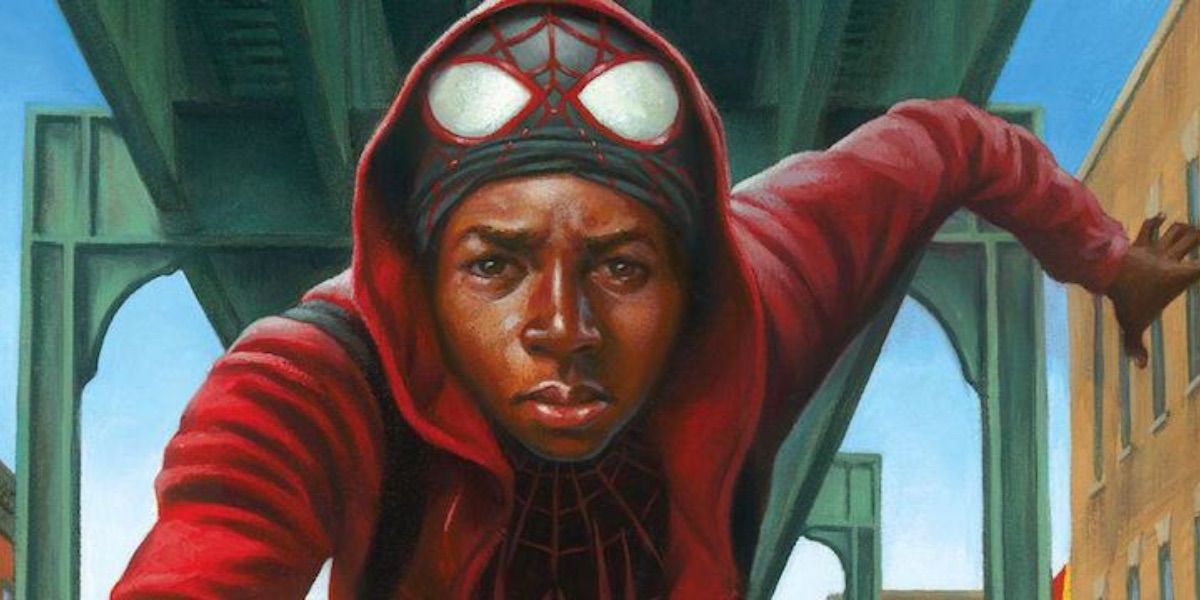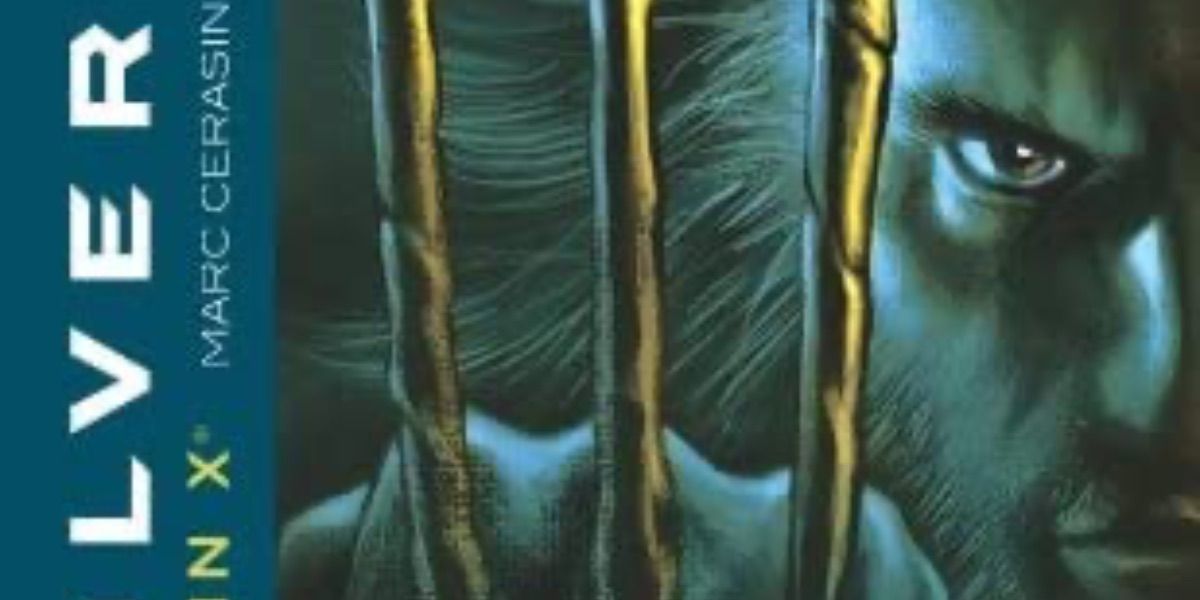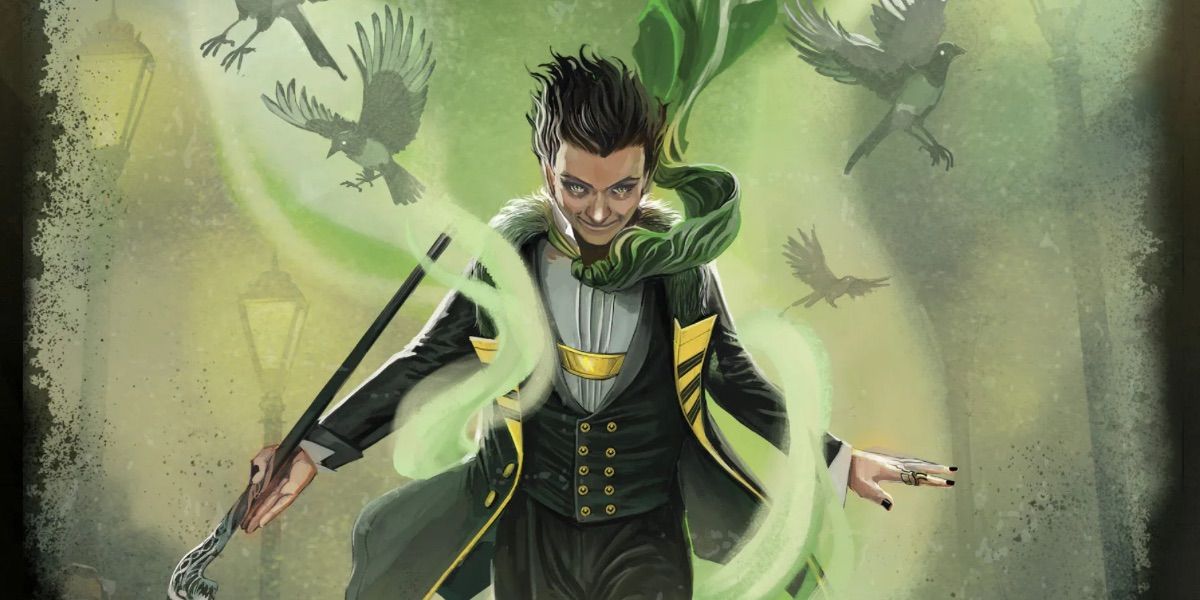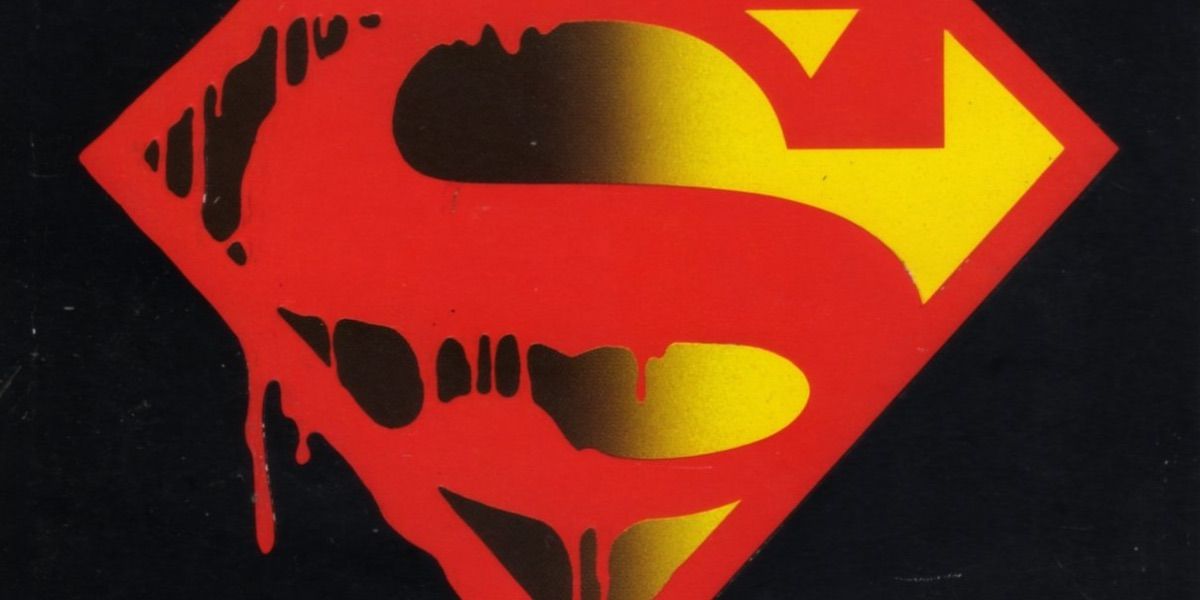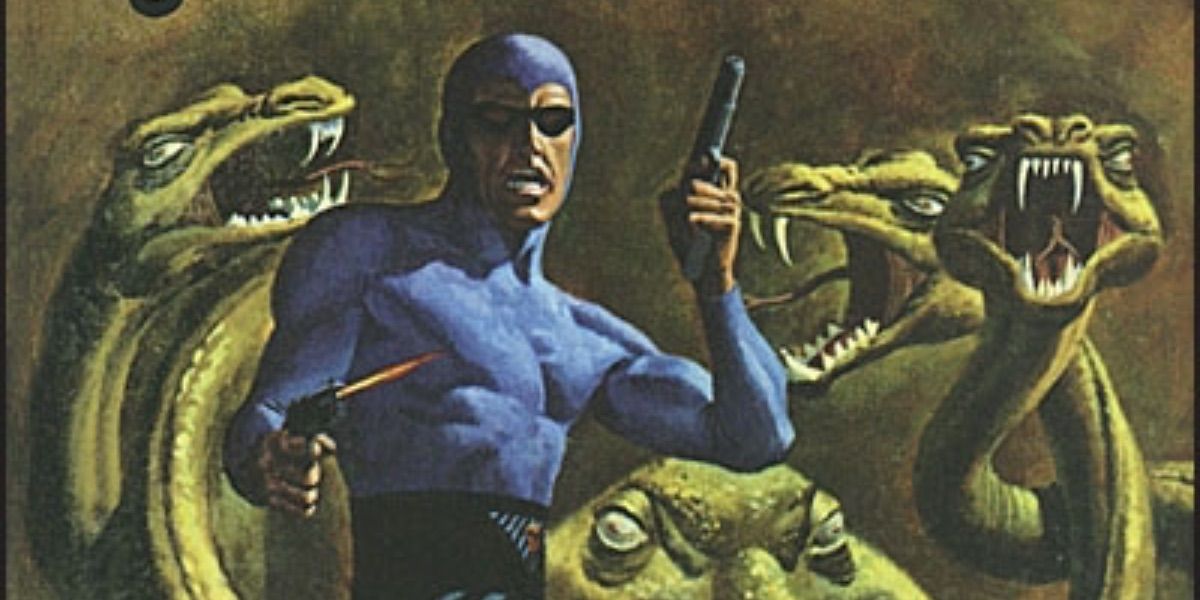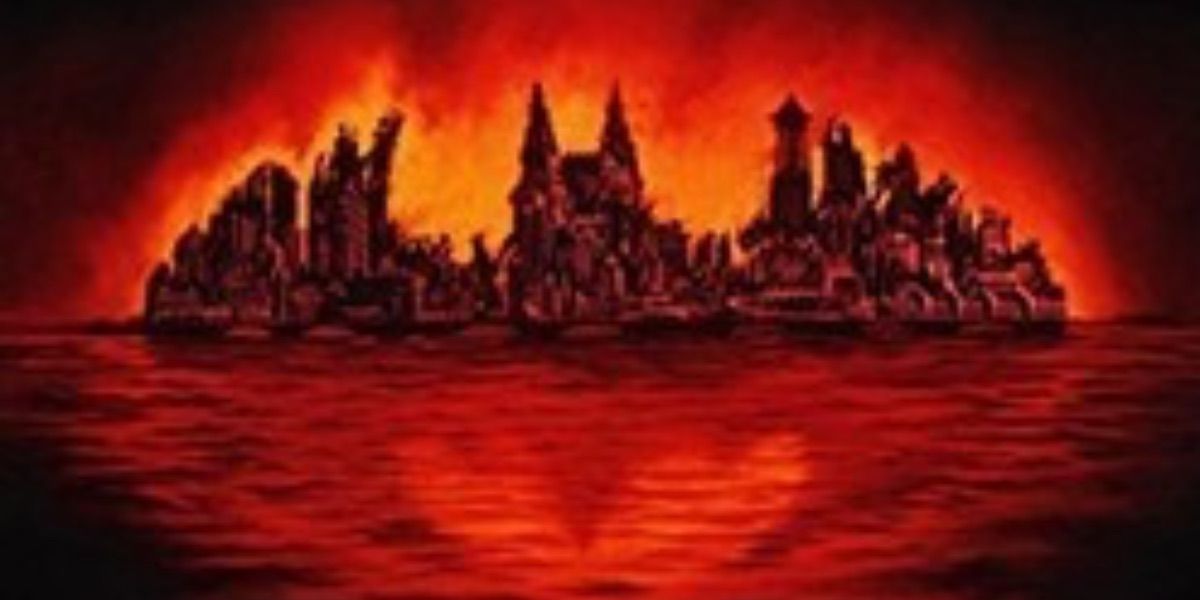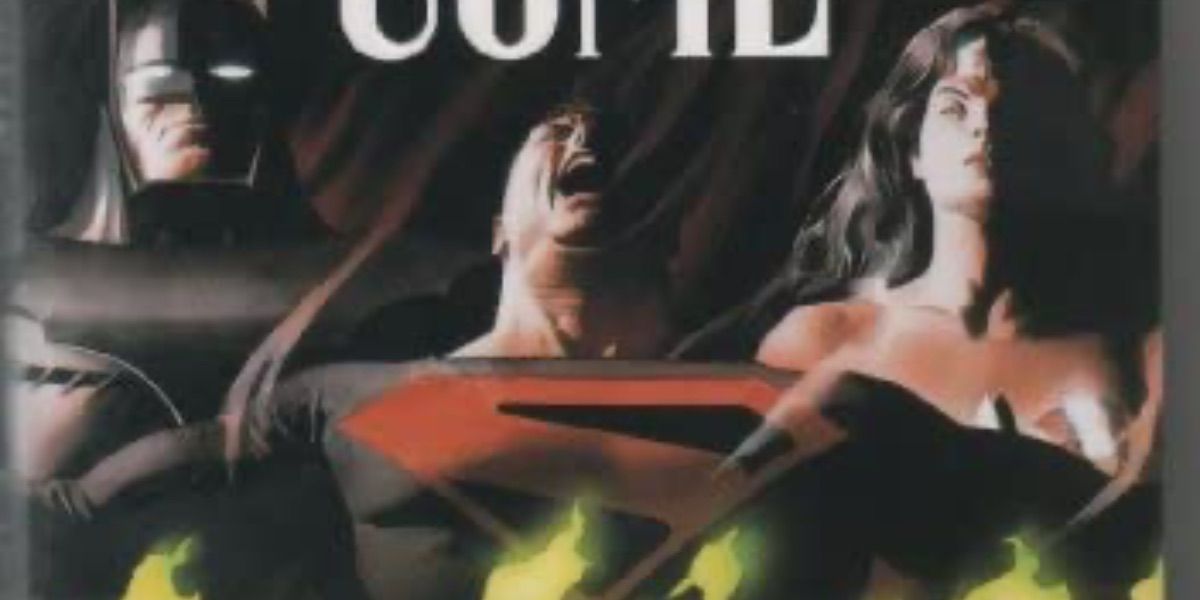With comic books movies and shows like Thor: Love and Thunder and She-Hulk dominating the media landscape, there is no denying that comics have become so much more than their pulpy pages. Even the world of books has seen a superhero invasion, and graphic novel icons have become literary mainstays as well.
From adaptations of gripping comic storylines like Kingdom Come to original character-based thrillers like Loki: Where Mischief Lies, the written word has had its fair share of superheroes and supervillains. Though most comic fans may not know they exist, some of the best comic book novels go above and beyond their graphic novel counterparts.
Hellblazer: War Lord (2006)
DC's wise-cracking occultist was the perfect character for the novel format, and Hellblazer: War Lord captured the unique tone of the Hellblazer comics in book form. Feeling lost after a botched spirit quest in the Middle East, John Constantine is recruited to help bring down a cabal of cult members who aim to resurrect an ancient demon known as War Lord.
Constantine's inner thoughts spill out on the page and the book affords a lot more access than a comic ever could. John Shirley was able to take the character to new places without betraying his persona from the comics, and the book feels like a perfect companion piece to the long-running series.
The Flash: Stop Motion (2004)
Coming as part of the overarching Justice League of America book series, The Flash: Stop Motion is undoubtedly the highlight of the collection. Feeling somewhat out of place on the team, Wally West returns to Keystone City to battle a supervillain threat that is capable of moving even faster than he can.
Like some of Flash's best comic book storylines, Stop Motion is as much about Wally's inner state as it is about his heroic battles. Exploring his relationship with the JLA was a brilliant choice by author Mark Schultz, and it gives the book a more literary feel as opposed to telling a simple story about a villainous menace.
Black Panther: The Young Prince (2018)
Comic books have always appealed to younger readers, and the characters of Marvel Comics are especially suited for the YA novel market. Ronald L. Smith's Black Panther: The Young Prince explores young T'Challa's life after he is sent to school in America where he must confront an ancient evil to protect his friends.
While the comics often feature a fully formed Black Panther taking on some of his most powerful adversaries, the novel is a somewhat subdued adventure. Accessible for readers of all ages, the book doesn't hit any of the common pitfalls of YA literature and is a compelling story for fans of Black Panther.
Miles Morales: Spider-Man (2017)
Taking the character from creator Brian Michael Bendis' hands for the first time in a stand-alone story, Miles Morales: Spider-Man was a pleasant surprise for anyone who picked it up. Struggling to reconcile his family's past with his present as a superhero, Morales begins to sense something strange is afoot at his high school.
Unabashedly political with its messaging, the novel is a tribute to the comic character that has more time to explore the threads of his life. Jason Reynold's writing style is quite complimentary to the writing of most Marvel Comics, and the book is a great read for the youngest among the True Believers.
Wolverine: Weapon X (2005)
Taking a page from the comic book storyline, Wolverine: Weapon X serves to further flesh out a dark time in Wolverine's lengthy lifetime. On the run for a murder charge, Wolverine is taken as part of a secret government project which turns the mutant into the adamantium-infused killing machine that he would be known as.
Wolverine is such a compelling character as is, and in the hands of writer Marc Cerasini he takes on an epic literary proportion. The Weapon X era of the character is quite saturated in the comics, but as a novel, it feels more fleshed out and complete. Perhaps one of the darkest Marvel novels of all time, Cerasini perfectly captures Logan in his prose.
Loki: Where Mischief Lies (2021)
The many variants of Loki in the comics all have one thing in common, and that is his being a truly compelling character that fits into almost every type of story. The YA novel Loki: Where Mischief Lies sees the young trickster god attempt to prove himself worthy of heroism, even though everyone in Asgard doubts him.
Though the plot is a bit cliche for the YA genre, Loki himself is what makes the book such a strong read. Author Mackenzi Lee doesn't editorialize too much with the established Loki mythos and the character grows beautifully on his own without too many changes. Readers have seen Loki at his worst, but the book allows them to see him at his best as well.
The Death And Life Of Superman (1993)
It is impossible to overstate the earth-shattering impact that the death of Superman had on the world in the early '90s, and the story proliferated into every form of media. Capturing the dramatic fall, and the eventual return of the Man of Steel, the book fills in the gaps where the comic book left off.
Written by Roger Stern, a veteran of Action Comics, the book has all the snappy writing that one expects from a comic book author. With such a massive narrative as the death and return of Superman, the novel justifies its over 400 pages of length by managing to surpass the original storyline in complexity and intrigue.
The Hydra Monster (1973)
Though the purple-clad hero never rose to the heights of contemporaries like Superman, The Phantom is one of the most important early superheroes to grace the newspaper strips of old. The Hydra Monster is a novelized adaption of one of Lee Falk's original tales and sees The Phantom track down a mysterious organization that appears in the wake of great disasters.
Written in a classic pulpy style, the relatively short novel brings the character to life better than most of his adapted appearances. With guns-a-blazing, The Phantom springs into action with a lot more grit than most comic book heroes, and it is a fine change of pace. The Phantom may not be the most famous hero, but he is certainly worth a second look.
Batman: No Man's Land (2001)
Truncating one of Batman's best ongoing storylines into one novel, Batman: No Man's Land was also penned by Greg Rucka who wrote the story in the comics. Following a cataclysmic earthquake that killed thousands and wounded millions, Batman must attempt to restore order in Gotham City which has descended into utter chaos.
Epic in scale and always engrossing, No Man's Land wasn't Batman's first foray into literature, but it is his best. Springing from Rucka's mind with the same ease that the comic book did, the story doesn't suffer from any translation problems as the author effortlessly jumps to a new medium. With more access to the Caped Crusader's thoughts, the book is even more nightmarish than the comic.
Kingdom Come (1998)
The Kingdom Come miniseries is usually heralded as one of DC's greatest Elseworlds stories of all time, and the novelization didn't miss a beat. Seen through the eyes of a minister, the world is overrun with superheroes without moral fiber after Superman, Wonder Woman, and Batman desert their posts.
Elliot Maggin draws heavily from the source material, but also further fleshes out what couldn't be illustrated in the comics. Even though it is a somewhat literal translation of the story, the strength of the message isn't diminished in the written word. Perfect as a companion piece to the miniseries, the Kingdom Come novel is like an extension of the epic tale.

